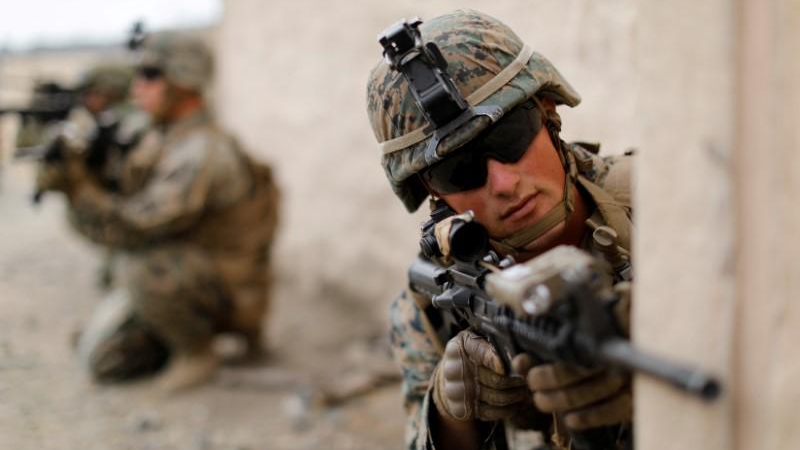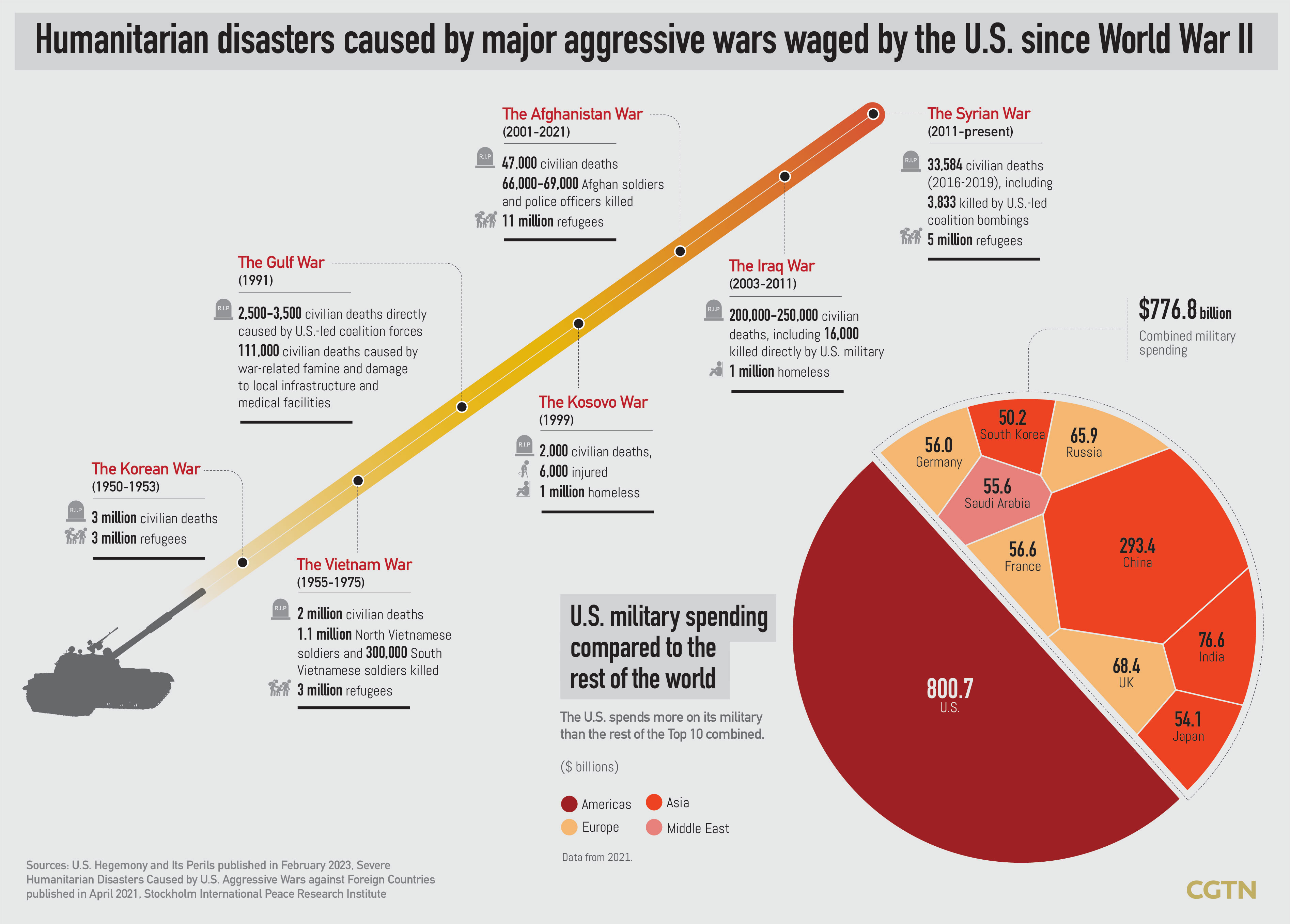
U.S. Marines conduct operations in urban terrain during a Rim of the Pacific Exercise (RIMPAC) at Camp Pendleton, California, U.S. July 9, 2018. /Reuters
U.S. Marines conduct operations in urban terrain during a Rim of the Pacific Exercise (RIMPAC) at Camp Pendleton, California, U.S. July 9, 2018. /Reuters
Almost one year has passed since the Russia-Ukraine conflict began in February 2022, but there's still no end in sight. War-weary Ukrainians' hope for peace was dashed again as the U.S. government continues to fuel the war with weapons.
During his surprise visit to Kyiv on Monday, U.S. President Joe Biden announced the U.S. would be providing $500 million in additional military aid to Ukraine, and imposing new sanctions against Russia.
Biden's gesture proves once again the country's military hegemony as highlighted in a new report released on Monday, showing how U.S. hegemony perils world peace and stability.
The report says the U.S. average annual military budget has exceeded $700 billion in recent years, accounting for 40 percent of the world's total. The huge amount of money has supported the U.S. government to conduct various military operations across the world for decades.
The U.S. undertook nearly 400 military interventions globally from its founding in 1776 to 2019, 34 percent of which were in Latin America and the Caribbean, 23 percent in East Asia and the Pacific, 14 percent in the Middle East and North Africa, and 13 percent in Europe, the report says, citing data from a Tufts University report.
Alex Lo, a South China Morning Post columnist, pointed out that the U.S. is repeating old tactics it used in the 20th century, waging proxy, low-intensity, and drone wars, in Ukraine, Iraq, Afghanistan, Libya, Syria, Pakistan and Yemen, in order to set up pro-American puppet regimes in these countries.
At present, the U.S. has about 800 overseas military bases, with 173,000 troops deployed in 159 countries, the report adds.
'The most warlike nation'
As former U.S. President Jimmy Carter put it, the U.S. is undoubtedly the most warlike nation in the history of the world.
Since it gained independence in 1776, the U.S. has constantly sought expansion by force in North America. Among the wars it provoked or launched after World War II, the War in Afghanistan stood out as America's longest-running overseas military operation.

During the two-decade-long war, a total of 47,000 Afghan civilians and 66,000 to 69,000 Afghan soldiers and police officers unrelated to the September 11 attacks were killed in U.S. military operations, and more than 10 million people were displaced, according to the report.
In addition, the war in Afghanistan destroyed the country's economy and the Afghan people were left destitute.
After the Taliban took over capital Kabul in August 2021, the U.S. froze some $9.5 billion in assets belonging to the Afghan central bank, Da Afghanistan Bank (DAB), a move considered "pure looting."
In February 2022, Biden signed an executive order unfreezing billions in Afghan funds in U.S. banks, which will be split between humanitarian aid and the victims of the September 11 attacks. The move was met with sharp condemnation from rights organizations and Afghan advocates.
Humanitarian tragedies
Humanitarian tragedies caused by U.S. military hegemony go far beyond Afghanistan.
In the name of fighting terrorism, the wars and military operations launched by the U.S have claimed over 900,000 lives since 2001, with some 335,000 of them civilian, the report says. For example, the 2003 Iraq War resulted in some 200,000 to 250,000 civilian deaths, including over 16,000 directly killed by the U.S. military, and left more than a million homeless.
The U.S. has created 37 million refugees around the world, according to the report. Since 2012, the number of Syrian refugees alone has increased tenfold. Between 2016 and 2019, 33,584 civilian deaths were documented in the Syrian fighting, including 3,833 killed by U.S.-led coalition bombings, half of them women and children.
The aftermath still lingers as the U.S. adopted appalling methods in major wars since 1950s.
The report says the U.S. used massive quantities of chemical and biological weapons as well as cluster bombs, fuel-air bombs, graphite bombs and depleted uranium bombs in these wars, causing enormous damage on civilian facilities, countless civilian casualties and lasting environmental pollution.